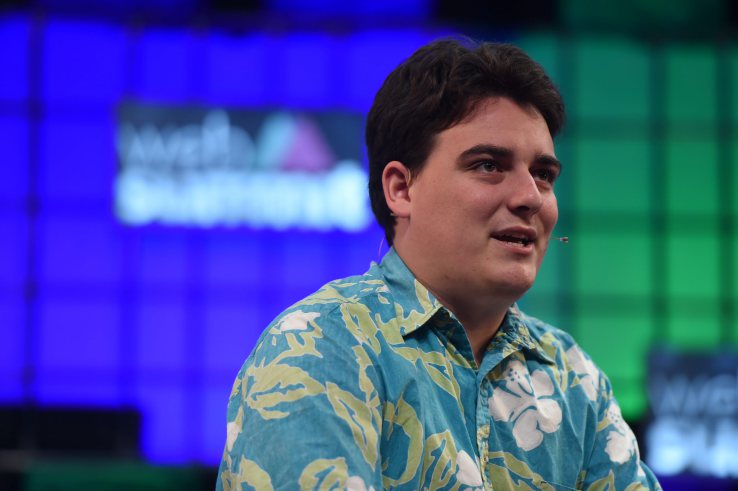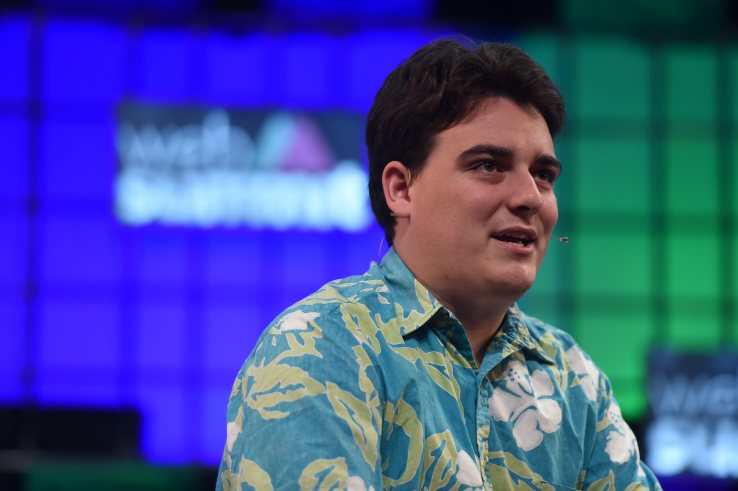

It hasn’t been a great couple of days for Facebook PR.
For one thing, the company admitted that, due to an error, it has been significantly inflating its reports on average video view times. For another, The Daily Beast discovered that Oculus founder Palmer Luckey is backing the pro-Donald Trump organization Nimble America, a group dedicated to promoting anti-Hillary Clinton memes
Now, the video views story is more likely to be important to Facebook’s bottom line, but what Luckey is doing with a tiny piece of his hundreds of millions of dollars in Facebook money is much weirder — it prompted one TechCrunch writer (not me, I swear) to ask their coworkers for an explanation of “shitposting.” (And perhaps inevitably, it involves infamous Internet troll Milo Yiannopoulos as a minor character — it seems Yiannopoulos was the one who connected Luckey with the anti-Clinton group.)
Now that the news is out there, will it prompt any kind of backlash against Oculus, at least from people who don’t share Nimble America’s politics? It’s hard to see many consumers letting this affect their buying decisions. And even if it does, well, there are plenty of Trump supporters out there.
The thing is, the Oculus Rift isn’t exactly mass consumer product yet. And as it tries to get there, goodwill from developers and early adopters could still be key. So when a handful of developers have already said they’re going to stop supporting Oculus the VR platform unless Facebook drops Luckey, it could be a sign that the company has some work to do.
The news also complicates the picture that Luckey has built up in the media as a geeky genius who’s just so damn passionate about virtual reality. All those things could be as true today as they were a year or two ago, but now you also have to think about the Luckey who’s supported trolls who hijack conversations with white supremacist memes, then explained that support by declaring, “Money is not my issue. I thought it sounded like a real jolly good time.”
Luckey responded to the story by admitting that he’s contributed $10,000 to Nimble America, but also denying that he authored controversial Reddit posts under the username NimbleRichMan. He said he’s voting for libertarian candidate Gary Johnson and concluded, “Still, my actions were my own and do not represent Oculus. I’m sorry for the impact my actions are having on the community.”
Some of the details of Luckey’s kinda, sorta denial/apology are a bit questionable. For one thing, Luckey seems to have confirmed his authorship of the NimbleRichMan posts to The Daily Beast’s Gideon Resnick. And regardless, the core fact — Luckey’s support of Nimble America — is not in dispute.
At this point, some of you may be concerned about the free speech implications of penalizing Luckey for his political views and actions. But of course Luckey is free to believe and support what and who he chooses. It’s just that everyone else is free as well to respond, whether that’s by expressing their feelings in blog and social media posts, or in reassessing their support of Oculus.
This may also reinforce an emerging media narrative, one that suggests Luckey and Peter Thiel (the Facebook investor and outspoken libertarian who helped to fund the lawsuit that took down Gawker) are typical of a wave of tech millionaires and billionaires who use their fortunes to “seek vengeance against the institutions they perceive to exclude them,” Revenge of the Nerds-style.
Maybe there’s an element of truth there — I can’t help but think of Silicon Valley co-creator Mike Judge’s suggestion (as recounted by investor Roger McNamee) that “Silicon Valley is immersed in a titanic battle between the hippie value system of the Steve Jobs generation and the Ayn Randian libertarian values of the Peter Thiel generation.”
But I also suspect that Thiel’s influence, while real, is often overstated because it fits into the story that journalists want to tell about those crazy tech libertarians. After all, we’re talking about a region and industry that has, by and large, supported Hillary Clinton.
So on the one hand, Luckey (or whoever wrote the NimbleRichMan posts) may be spouting familiar conservative rhetoric about how he “started from nothing and worked [his] way to the top,” but on the other, you’ve got Nest co-founder Matt Rogers rolling his eyes and calling Luckey a “disgrace.”
And if you want to focus on Facebook money, there’s the $20 million that Facebook co-founder Dustin Moskovitz donated to organizations supporting the Clinton campaign.
So are rich tech libertarians make for a new trend? Maybe. But they’re part of an old, reliable one, too — even outside tech, it isn’t exactly a surprise to learn that the some of the fabulously wealthy might spend their money in ways that we find deeply objectionable.
Featured Image: Web Summit/Flickr UNDER A CC BY 2.0 LICENSE

